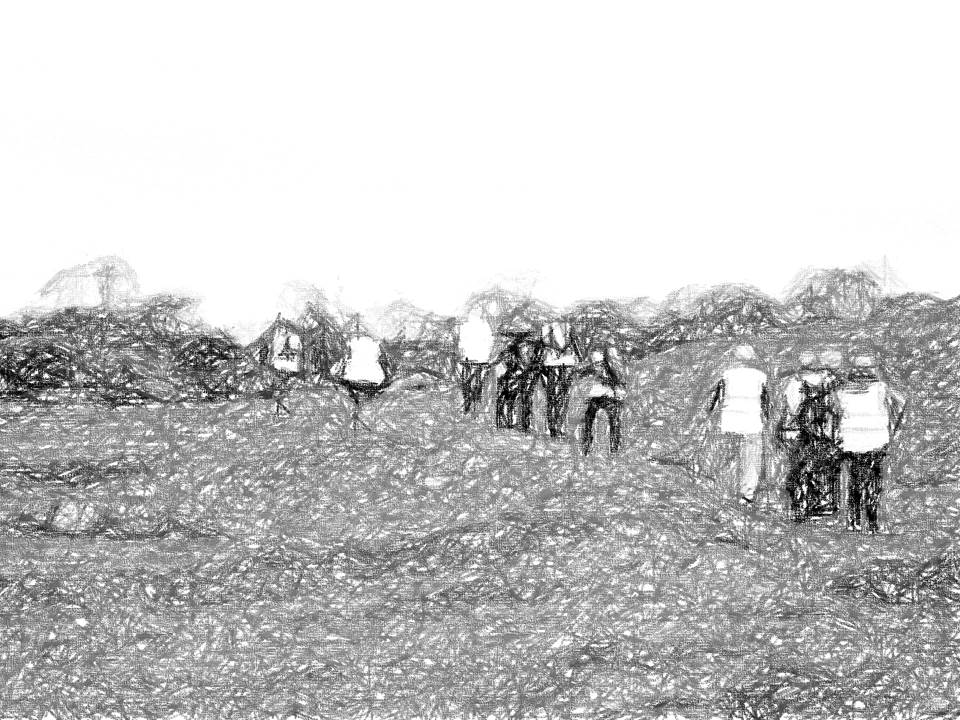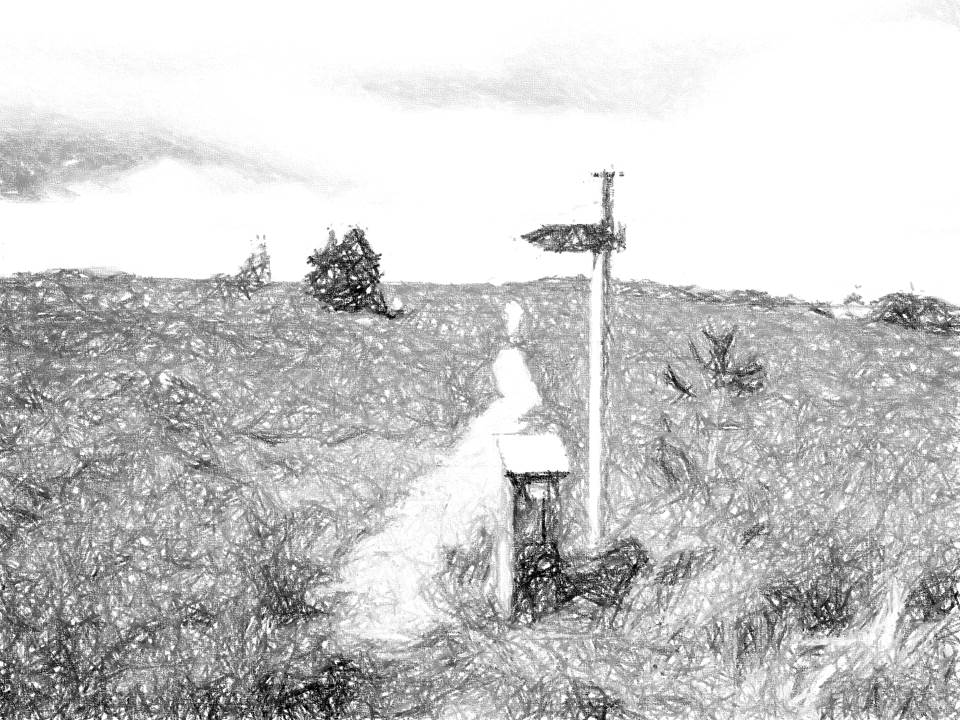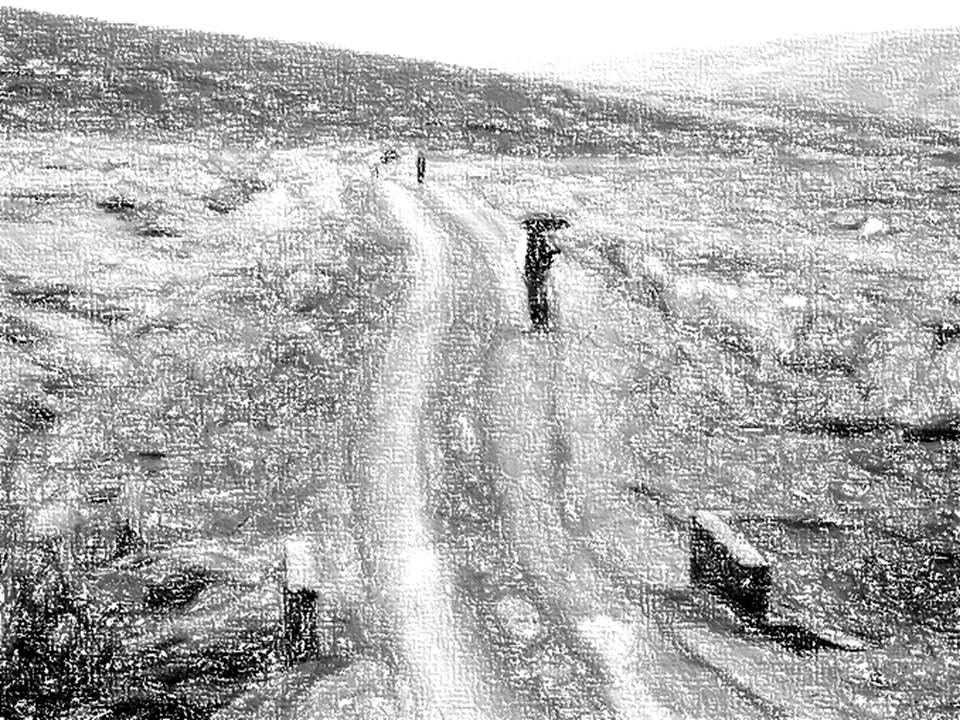Lines
Lines are traced and followed, made and extended, grooved and lived. I’m concerned with the lines of the pilgrim path. Using the ‘Pencil Sketch’ function on MS Powerpoint I altered some fieldwork photos taken while walking Tóchar Phádraig as part of different groups over the past few years as a way of exploring the role of lines. Starting with the literal lines of the images rendered as drawings, I wish to explore the others lines and meanings present.
Robert Stoddard, in his 1987 article Pilgrimages Along Sacred Paths, explored the geography of sacred space as points, lines, or areas, with the lines category referring to the routes of travel of activities associated with religious motives. This classification draws attention to the line itself, that is the pilgrim path in this cases, as having significance, rather than being a mere route to a sacred site (spot). Elsewhere, the anthropologist Tim Ingold, in his book Lines: A Brief History, explores the potential of the line as movement, through the concept of wayfaring. The line is a pathway, it is movement, it is the means through a person engages with the surrounding environment.
Through a few (geo) poetic stanzas I trace some thoughts on lines in this pilgrimage. I wonder where they will lead?

Pilgrims:
A row setting out
Near departure, pace emerging
Movements and motions linking each person to the next
Each person is the line
Leading and following, a common rhythm, an alignment
Pilgrims as line

Path:
The path is active
It has been walked and will be walked
Stretching across the boggy terrain
A trackway towards the Reek,
but also approaching other places
Lines roaming out, in and beyond

Landscape:
Sweeping, reaching, gliding
The path, the land, the pilgrims are spaced
Each line mingles and flows
The path is landscape, landscape is pilgrim, pilgrim is path
All are lines